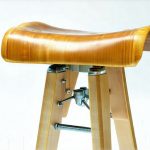The human body is remarkably resilient, adapting to a wide range of environmental conditions. However, even minor disruptions in basic needs – like consistent hydration – can quickly lead to discomfort and physiological challenges. One common consequence of limited water access is constipation, often manifesting as hard stools that are difficult and sometimes painful to pass. This isn’t merely an inconvenience; it’s a signal from the body indicating a need for attention and proactive management. Understanding why this happens during times of reduced fluid intake, and how to mitigate its effects, is crucial for maintaining well-being when resources are scarce or access is limited due to travel, emergencies, or other unforeseen circumstances.
Constipation, in general, isn’t usually a serious medical condition, but prolonged or severe cases can be incredibly debilitating, impacting quality of life and potentially leading to secondary complications. When water intake diminishes, the body prioritizes essential functions. The large intestine, responsible for absorbing water from undigested food material, will conserve more fluid to maintain overall hydration levels. This leads to drier, harder stools that are difficult to move through the digestive tract. Recognizing the early signs and implementing simple strategies can prevent a minor issue from escalating into a significant health concern, especially when access to medical care is restricted or delayed. You might also consider planning for times of stress with digestive rest days to give your system a break.
Understanding the Physiological Changes
The process of stool formation is intimately linked to hydration levels. Normally, the large intestine efficiently absorbs water, transforming liquid waste into formed stools. This absorption is regulated by various factors, including hormones and the overall state of hydration. When adequate water is available, stools remain soft and easily pass through the intestinal tract. However, when fluid intake decreases – or is coupled with increased fluid loss due to heat, exertion, or diarrhea – the large intestine compensates by absorbing more water from the waste. This results in a significantly drier fecal mass.
This isn’t simply about lacking enough liquid; it’s also about electrolyte balance. Water follows electrolytes (sodium, potassium, chloride) and when these are imbalanced due to dehydration or inadequate intake, the body struggles to maintain proper fluid distribution. The colon becomes less efficient at moving waste along, leading to prolonged transit time and increased water absorption. Think of it like trying to push a dry sponge through a narrow tube – it requires more effort and is significantly harder than pushing a wet one. Understanding gut testing can also help you understand your body’s needs better.
Furthermore, reduced hydration impacts the muscle contractions (peristalsis) that propel stool through the digestive system. Adequate hydration supports healthy peristaltic movement; dehydration slows things down, contributing to constipation. This creates a vicious cycle: hard stools require more straining, which can further dehydrate you and exacerbate the problem. Maintaining even a minimal level of hydration is paramount when water access is limited. If your GERD flares up during times of stress, exploring alkaline water might be helpful.
Dietary Adjustments for Easier Passage
When faced with limited water availability, dietary choices become even more important. While drinking water remains the primary solution, certain foods can help soften stools and promote regularity, effectively working with your body’s needs rather than against them. Focusing on fiber-rich foods is a key strategy, but it’s crucial to understand the type of fiber and how it interacts with limited hydration.
- Soluble fiber, found in oats, beans, lentils, apples, and carrots, absorbs water and forms a gel-like substance that softens stool. This can be particularly helpful when fluid intake is restricted, as it helps retain what little moisture is available within the digestive system.
- Insoluble fiber, present in whole grains, bran, and vegetables like broccoli, adds bulk to the stool and stimulates peristalsis. While beneficial with sufficient hydration, excessive insoluble fiber without enough water can actually worsen constipation, making stools harder to pass.
It’s important to introduce fiber gradually, as a sudden increase can cause bloating and gas. Small, frequent meals are also preferable to large ones, as they put less strain on the digestive system. Consider incorporating foods with natural laxative properties like prunes or figs if available – even small amounts can provide relief. However, remember that food cannot replace water; it’s a supplemental approach. For those times when life feels overwhelming and gut health suffers, learning how to handle gut health can be incredibly useful.
The Role of Physical Activity and Positioning
Constipation isn’t solely a dietary issue; physical activity plays a significant role in gut motility. Even moderate exercise – walking, stretching, or gentle movements – can stimulate peristalsis and help move stool along the digestive tract. When water access is limited, opportunities for strenuous activity may be reduced, making deliberate movement even more crucial. Simple exercises like torso twists, squats (if physically possible), and mindful stretching can make a difference.
Beyond exercise, positioning can also impact bowel function. Sitting upright with good posture allows gravity to assist the natural movement of stool through the intestines. Avoid prolonged sitting or slouching, as this constricts the digestive system. If possible, consider using a small footstool when seated to elevate your knees slightly – this naturally encourages bowel movements.
The squatting position is often considered ideal for elimination, as it straightens the anorectal angle and makes passing stool easier. While full squatting may not always be practical or comfortable, mimicking the position by leaning forward while sitting can provide some benefit. Small changes in posture and movement can have a surprisingly significant impact on bowel regularity. If you are undergoing cancer treatment, remember that mental health support is also important.
Preventing Dehydration Escalation: Prioritization & Conservation
The best approach to hard stools during times of limited water access is prevention. This means proactively prioritizing fluid intake, even when resources are scarce. Rationing water isn’t always about reducing overall consumption; it’s about optimizing how you use it.
- Prioritize hydration before exertion: Drink whatever water is available before engaging in physically demanding activities or spending time in hot environments. This replenishes fluids lost through sweat and reduces the risk of dehydration escalating.
- Conserve fluid through mindful practices: Reduce sweating by minimizing strenuous activity during peak heat hours, seeking shade whenever possible, and wearing loose-fitting clothing that allows for ventilation.
- Explore alternative hydration sources (carefully): If safe water sources are limited, consider collecting rainwater or dew – but always prioritize purification methods if available. Be cautious about consuming unverified water sources, as they may contain contaminants. Oral rehydration solutions (ORS) can be invaluable in replenishing both fluids and electrolytes, especially after bouts of diarrhea.
Remember, even small sips of water throughout the day are more effective than infrequent large gulps. Consistency is key. By understanding the physiological changes that occur during dehydration and implementing proactive strategies for fluid conservation and dietary adjustment, you can significantly mitigate the risk of constipation and maintain a higher level of comfort and well-being when access to water is limited. Building a timeline for your recovery can provide peace of mind too.


















